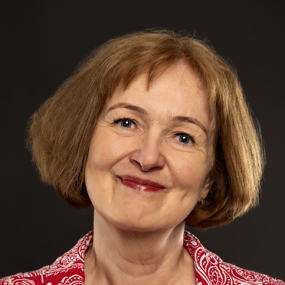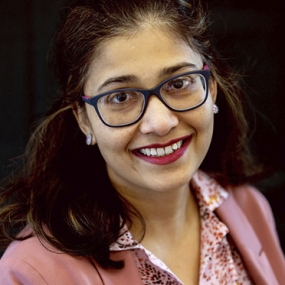From the Guest Editors: Autumn 2025


Firstly, we would like to thank Dr Jon Chambers, Bulletin Editor, for the opportunity to write this introduction and for allowing us to pull together this Bulletin issue.
SAS Week (6–10 October 2025), now in its fourth year, provides an opportunity to celebrate the specialty, associate specialist and specialist (SAS) anaesthetist workforce. SAS Week in previous years has been an opportunity for SAS colleagues to meet locally, regionally and nationally, with many educational and networking events taking place. Trusts have celebrated the contribution of SAS colleagues to the NHS, and therefore, we take inspiration to showcase this part of our workforce at the College through this themed Bulletin issue.
Career progression has always been an area of difficulty and frustration for SAS doctors, and the introduction of the 2021 SAS contract and the opening of the specialist role have disappointingly not lived up to the promise of progression within the grade. Appointment to specialist posts has been difficult for many, has been geographically variable, and may be worsened by current financial pressures. Dr Ashwini Keshkamat and Dr Thomas James share their experiences of becoming specialists to hopefully show it can – and should – be done. Employers are already using many of their SAS grades to the level of specialist practice; it is time to recognise them and appoint them accordingly.
If your career aspirations lie in entering the specialist register, Dr Nirmala Soundararajan shares her extensive expertise and summarises what is required to successfully complete the Portfolio Pathway. Exams will need to be passed along the way, and Steve Beglan-Witt from our Education, Training and Exams department explains recent changes to exam eligibility, as well as capacity considerations. Dr Coralie Carle – Chair of the Primary FRCA exam – gives a view from across the exam table, informed by her years of experience as an examiner. Her sensible advice is valuable beyond just the Primary exam.
How departments support SAS doctors impacts recruitment and retention of SAS and other grades, and contributes to long-term workforce and rota sustainability. Departmental culture and practices should be in line with the standards the College sets. These standards underpin our peer-review accreditation scheme (Anaesthesia Clinical Services Accreditation). Dr Jon Chambers shows how departmental culture towards SAS doctors feeds into the ACSA process and is examined as a marker of quality.
Dr Zoe Robertson shows us how employers can turn the aims of The SAS Collective and the #SASsix campaign into tangible, real-life gains for both employees and employers. Her trust exemplifies best practice and leads the way, hopefully for many others to follow. Organisational culture is pivotal to progress, and human resources departments can play a crucial role.
Protected characteristics are overrepresented within the SAS grade, and this is examined for us by Dr Sophie Jackman and Dr Sarah Thornton. Knowledge and statistics on matters relating to recruitment and attainment are not the solution in themselves, but they underpin the College’s efforts towards levelling the playing field. We will continue to work hard in this area.
In recent years, the NHS has relied increasingly on recruitment from abroad, and our specialty is no exception to this. GMC workforce data shows that more international colleagues have joined us than graduates from UK medical schools. Many of our international medical graduate (IMG) colleagues experience a challenging transition into the NHS, an experience Dr Srishti Tiwari bravely shares with us. I hope other IMGs take comfort in knowing that they are not alone. More importantly, colleagues, educators and leaders should feel reminded that they can play a crucial role in supporting our newest and most vulnerable colleagues. At the College’s SAS Committee, we see ourselves as representing locally employed doctors (LEDs), the majority of whom come from abroad, as well as SAS doctors.
Progress isn’t made without advocacy and a lot of hard work, and leadership. As one of the best-known, most eloquent and tireless leaders within the SAS community, Rob Fleming shares his personal reflections on leadership. As senior doctors, we all lead in our daily clinical work, so we all have the need and opportunity to develop relevant skills. There are opportunities to take them into non-clinical roles if you want to. Hopefully, his wise words will inspire you, and he also reminds us that we need rest and relaxation, to look after ourselves and loved ones, and to pursue other interests. His wider talents are shown in his photography accompanying his article.
‘If you have the opportunity to lift as you climb, do so!’
As your SAS representatives on College Council we like to hear from you. Any feedback or ideas for further work can be sent to us , but please bear in mind that the College’s remit does not include contractual matters or job planning.
We hope you enjoy this autumn issue of the Bulletin.
